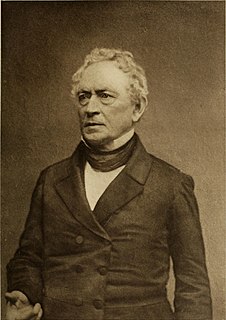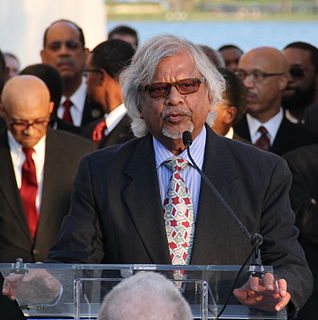A Quote by Edward Everett
Truth travels down from the heights of philosophy to the humblest walks of life, and up from the simplest perceptions of an awakened intellect to the discoveries which almost change the face of the world. At every stage of its progress it is genial, luminous, creative.
Related Quotes
Then the soul, freed from vice, purged by studies of true philosophy, versed in spiritual life, and practised in matters of the intellect, devoted to the contemplation of her own substance, as if awakened from deepest sleep, opens those eyes which all possess but few use, and sees in herself a ray of that light which is the true image of the angelic beauty communicated to her, and of which she then communicates a faint shadow to the body.
The epoch of doubt and transition during which the Greeks passed from the dim fancies of mythology to the fierce light of science was the age of Pericles, and the endeavour to substitute certain truth for the prescriptions of impaired authorities, which was then beginning to absorb the energies of the Greek intellect, is the grandest movement in the profane annals of mankind, for to it we owe, even after the immeasurable progress accomplished by Christianity, much of our philosophy and far the better part of the political knowledge we possess.
Passion is what makes life interesting, what ignites our soul, fuels our love and carries our friendships, stimulates our intellect, and pushes our limits... A passion for life is contagious and uplifting. Passion cuts both ways... Those that make you feel on top of the world are equally able to turn it upside down... In my life I want to create passion in my own life and with those I care for. I want to feel, experience and live every emotion. I will suffer through the bad for the heights of the good.
Satyagraha is the pursuit of truth. My grandfather believed that truth should be the cornerstone of everybody's life and that we must dedicate our lives to pursuing truth, to finding out the truth in our lives. And so his entire philosophy was the philosophy of life. It was not just a philosophy for conflict resolution, but something that we have to imbibe in our life and live it all the time so that we can improve and become better human beings.
Progress, far from consisting in change, depends on retentiveness. When change is absolute there remains no being to improve and no direction is set for possible improvement: and when experience is not retained, as among savages, infancy is perpetual. Those who cannot remember the past are condemned to repeat it. In the first stage of life the mind is frivolous and easily distracted; it misses progress by failing in consecutiveness and persistence. This is the condition of children and barbarians, in which instinct has learned nothing from experience.
One can delineate the domain of philosophy however one likes, but in its search for truth, philosophy is always concerned with human existence. Authentic philosophizing refuses to remain at the stage of knowledge […]. Care for human existence and its truth makes philosophy a 'practical science' in the deepest sense, and it also leads philosophy—and this is the crucial point—into the concrete distress of human existence.
Philosophy, for Plato, is a kind of vision, the 'vision of truth'...Everyone who has done any kind of creative work has experienced, in a greater or less degree, the state of mind in which, after long labour, truth or beauty appears, or seems to appear, in a sudden glory - it may only be about some small matter, or it may be about the universe. I think that most of the best creative work, in art, in science, in literature, and in philosophy, has been a result of just such a moment.
Talking about creating truth tends to alarm people, because truth is meant to be 'just out there'. It doesn't take much thinking to appreciate that we sometimes change truths on the ground - sometimes just by words. A new law will change what is possible. I think - perhaps because the paradigm we follow tends to be scientific, and all about discovery - the creative element of truth is one upon which we don't focus so much attention. This is particularly so in anglophone philosophy, perhaps because we associate it too much with those 'pernicious' continental trends.












































